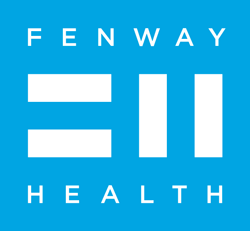 Analysis from The Fenway Institute finds U.S. lags other countries–most U.S. doctors don’t prescribe HPV vaccine; only one-third of eligible females have been vaccinated
Analysis from The Fenway Institute finds U.S. lags other countries–most U.S. doctors don’t prescribe HPV vaccine; only one-third of eligible females have been vaccinated
Human papilloma virus (HPV)—contracted by six million Americans each year, mostly through sexual contact—is preventable through a vaccine now recommended for all females and males age 11 to 26. However, vaccination rates remain low in the U.S., in part because only one-third of doctors prescribe the vaccine to eligible patients, according to an analysis by The Fenway Institute released today. HPV infection can lead to genital warts and certain types of cancer.
“HPV vaccine could prevent thousands of cases of cervical cancer, anal cancer, oropharyngeal and other cancers each year,” said Kenneth Mayer, MD, Medical Research Director and Co-Chair of The Fenway Institute. “Unfortunately, only one third of girls and young women have received the recommended three doses of the vaccine. Australia and Japan have shown that achieving much higher vaccination rates is possible with concerted vaccination campaigns.”
The Fenway analysis of HPV vaccination issues, titled Promoting Human Papilloma Virus Vaccine to Prevent Genital Warts and Cancers, notes that 20 million Americans have detectable HPV infection. About 3 million people have genital warts caused by HPV. The U.S. Advisory Committee on Immunization Practices (ACIP) recommended HPV vaccine for girls and young women several years ago. In late 2011 it recommended the vaccine for boys and young men. However, data from the Centers for Disease Control and Prevention indicate that the United States lags behind other countries, where vaccination campaigns have been more successful. In the U.S. in 2010, only 32% of girls aged 13-17 had completed the three-dose HPV vaccine. By contrast, in Australia 73% of 12- and 13-year old girls have completed the three-dose HPV vaccine, thanks to a four-year, $632 million HPV vaccination campaign there. In recent years the incidence of genital warts among women in Australia dropped 59%; it also dropped 28% among men, demonstrating that vaccinating young women for HPV improves young men’s sexual health as well.
“We know how to scale up HPV vaccination and reduce HPV-related conditions such as genital warts and cervical cancer,” said Sean Cahill, Director of Health Policy Research at The Fenway Institute. “What we need is strong public health leadership, particularly at the state level, where we see significant variations in vaccination rates.”
The states with the highest rates of HPV vaccine are several New England states, Delaware and Nebraska, where vaccination of girls is above 40%. Idaho and Arkansas have the lowest rates of HPV vaccination, below 20%. The HPV vaccination rate for boys was only 1.4% in 2010, but this was before the ACIP recommendation of HPV vaccine for boys and young men.
The Fenway Institute analysis, written by John Trinidad, MPH, a research fellow from Harvard School of Public Health who is also attending the University of California at San Francisco School of Medicine, examines insurance coverage of HPV vaccine, including what the ACIP recommendations mean for insurance coverage under the Affordable Care Act. It also describes structural barriers to vaccine uptake, including low rates of STI clinics offering the HPV vaccine and low rates of doctors prescribing it to eligible patients.
The brief concludes with a set of policy recommendations, including:
- Mandating or encouraging HPV vaccine through social institutions such as the military, state- and federally-funded colleges and universities, and government-funded job training programs. This is currently done for measles/mumps/rubella and tetanus/diphtheria/pertussis vaccinations.
- Steps to increase prescription or delivery of the vaccine by providers and at STI clinics.
- Steps to reduce cost barriers; the vaccine costs about $400 for the three doses.
- Research to understand gaps in awareness of the HPV vaccine, disparities in vaccination rates, the incremental benefits of vaccination for men and women older than 26, and the use of HPV in a therapeutic manner.
“We urge all health care providers to routinely offer HPV vaccine to all eligible patients, as recommended by the American Academy of Pediatrics earlier this year in its vaccination guidelines,” said Mayer. “We have the means to prevent millions of HPV infections each year, and thousands of cases of HPV-related cancer.”
A PDF of the HPV vaccination policy brief is available online at fenwayhealth.org/hpvvaccine.
For more than forty years, Fenway Health has been working to make life healthier for the people in our neighborhood, the LGBT community, people living with HIV/AIDS and the broader population. The Fenway Institute at Fenway Health is an interdisciplinary center for research, training, education and policy development focusing on national and international health issues. Fenway’s Sidney Borum Jr. Health Center cares for youth and young adults ages 12 to 29 who may not feel comfortable going anywhere else, including those who are LGBT or just figuring things out; homeless or living on the streets; struggling with substance use or abuse; sex workers; or living with HIV/AIDS.
[From a Press Release]







